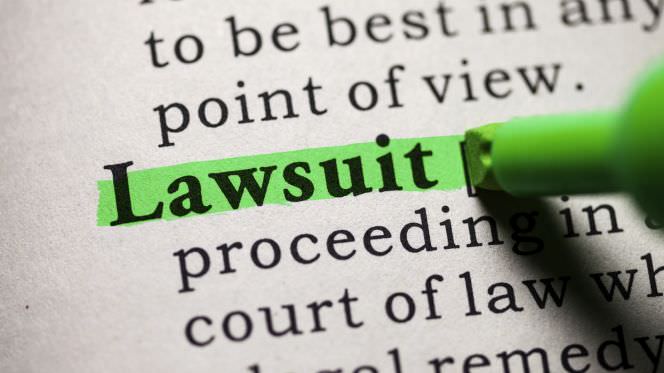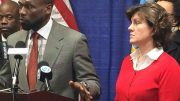NEW YORK — In a landmark settlement announced today, the New York City Police Department has agreed to reforms designed to protect New York Muslims and others from discriminatory and unjustified surveillance. As a further safeguard, the settlement installs a civilian representative within the NYPD to act as a check on investigations involving political or religious activity.
The settlement was reached in two lawsuits, Raza v. City of New York and Handschu v. Special Services Division. Raza was brought in June 2013 by the American Civil Liberties Union, the Creating Law Enforcement Accountability & Responsibility (CLEAR) project of Main Street Legal Services at CUNY School of Law, the New York Civil Liberties Union, and the law firm Morrison & Foerster LLP on behalf of religious and community leaders, mosques, and a charitable organization, alleging they were swept up in the NYPD’s dragnet surveillance of Muslims. The suit charged that the NYPD violated the U.S. and New York State Constitutions by singling out and stigmatizing entire communities of New Yorkers based on their religion. The case sought systemic reforms to prevent law enforcement abuses.
Separately, lawyers in Handschu argued that the NYPD’s investigations of Muslims violated a long-standing consent decree in that case, which was a class action to protect New Yorkers’ lawful political and religious activities from unwarranted NYPD surveillance.
The agreement is subject to court approval in both the Raza and Handschu cases and is the result of negotiations undertaken for over a year. The rules currently governing NYPD surveillance of political and other First Amendment-protected activity are called the Handschu guidelines. They were originally ordered by the Handschu court in 1985 and were weakened in 2003 following NYPD requests to the court.
The proposed settlement includes modification of the guidelines along two principal lines: incorporating new safeguards and installing a civilian representative within the NYPD to reinforce all safeguards.
The settlement and reforms include these changes:
Because the settlement involves modifications to the court-ordered Handschu guidelines, and because Handschu is a class action, the federal judge presiding over the Handschu case must approve them. Before he does so, the court will hold a hearing at which members of the plaintiff class can speak.
Below are reactions from attorneys on the case and the lead Raza plaintiff:
Hina Shamsi, ACLU National Security Project director:
“For the first time, this watershed settlement puts much needed constraints on law enforcement’s discriminatory and unjustified surveillance of Muslims. At a time of rampant anti-Muslim hysteria and prejudice nationwide, this agreement with the country’s largest police force sends a forceful message that bias-based policing is unlawful, harmful, and unnecessary. We hope the NYPD’s reforms help make clear that effective policing can and must be achieved without unconstitutional religious profiling of Muslims or any other communities.”
Imam Hamid Hassan Raza, lead plaintiff in the Raza suit:
“In America, we have the right to stand up and speak out in response to unfairness and injustice, just as throughout this country’s history, other minorities have done the same thing and secured their rights. We believe we have made important progress with this settlement, not only for New York Muslim communities but for other minorities in New York and beyond.”
Ramzi Kassem, CLEAR founding director and CUNY professor of law:
“Despite the fear and stigma that unwarranted NYPD spying has fostered in Muslim communities, representatives of those communities and their allies organized and took a courageous stand to demand change, through this lawsuit and in many other ways. This settlement offers all New Yorkers a solid platform from which to pursue further reform.”
Arthur Eisenberg, NYCLU legal director:
“This settlement is a win for all New Yorkers. It will curtail practices that wrongly stigmatize individuals simply on the basis of their religion, race, or ethnicity. At the same time, the NYPD’s investigative practices will be rendered more effective by focusing on criminal behavior. The preservation of constitutional freedoms and the protection of public safety are not incompatible.”
In addition to Shamsi, Kassem, and Eisenberg, lawyers on the Raza case include Patrick Toomey and Ashley Gorski of the ACLU, Naz Ahmad of CLEAR, Beth Haroules of the NYCLU, and Hector Gallegos, Kyle Mooney, and Adam Hunt of Morrison & Foerster LLP. Lawyers on the Handschu case are Eisenberg, Jethro M. Eisenstein, Martin R. Stolar, Paul G. Chevigny, and Franklin Siegel.
Today’s settlement is at:
https://www.aclu.org/legal-document/raza-v-city-new-york-settlement-stipulation-and-order
The proposed changes to the Handschu guidelines are at:
https://www.aclu.org/raza-v-city-new-york-exhibit-settlement-stipulation-and-order-proposed-modified-handschu-guidelines
CLEAR’s Mapping Muslims report is at:
http://www.law.cuny.edu/academics/clinics/immigration/clear/Mapping-Muslims.pdf
A detailed explainer is at:
https://www.aclu.org/blog/speak-freely/landmark-settlement-challenge-nypd-surveillance-new-york-muslims-what-you-need
Source: www.aclu.org




